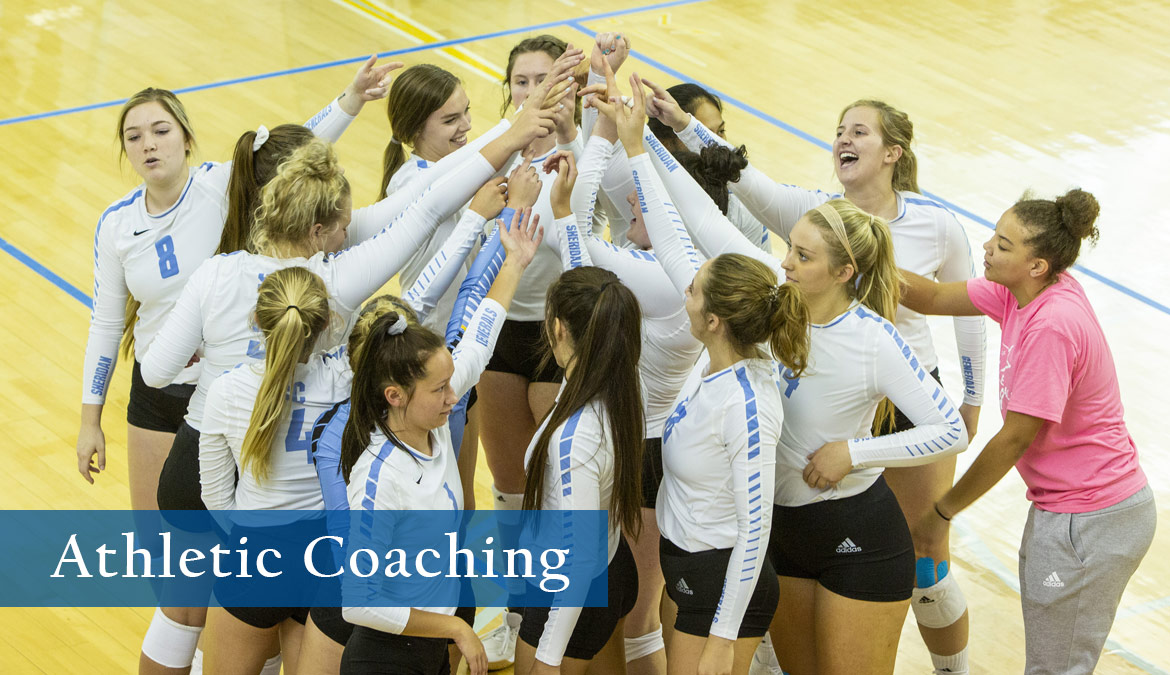
Athletic Coaching
According to the American Sport Education Program, any coaching requires a credential. Earn your Certificate of Completion in Athletic Coaching from Sheridan College and meet the requirements set by the Wyoming Professional Teaching Standards Board to work as a full- or part-time coach.
Program Highlights?
The Scientific Foundations of Athletic Coaching course uses ASEP’s curriculum and principles to introduce students to the fundamentals and philosophy of athletic coaching. As a student at Sheridan College, you will be exposed to many topics, including sport psychology, injury prevention and care, theory of sport, diversity in coaching, technical and tactical skills, risk management, and ethics in coaching.
Our enthusiastic, expert faculty will teach you the fundamental aspects of coaching professional and amateur athletes, from coaching theory to care and prevention of athletic injuries.
Industry Outlook
Skilled and passionate coaches are needed throughout the country for this growing and ever-changing industry. The U.S. Bureau of Labor Statistics predicts that employment of coaches and scouts is projected to grow 9 percent from 2023 to 2033.
Faculty and Community
Our dedicated faculty at Sheridan College will make sure you understand the fundamentals of athletic coaching. Highly trained instructors will guide you through well designed and fun courses.
Sheridan College has strong partnerships when it comes to athletic coaching. Students who complete the Certificate of Completion in Athletic Coaching have the opportunity to pursue higher education across the country.
Careers and Opportunities
Earning Sheridan College’s highly regarded Athletic Coaching Certificate will help launch your career as a coach, your responsibilities and duties may include:
- Planning, organizing, and leading practices
- Teaching techniques, rules, and sportsmanship
- Analyzing strengths and weakness of athletes and teams
- Serving as mentor, encouraging, and shaping athletes
- Calling plays and developing game plans and strategy
- Managing sports statistics
- Recruiting new athletes



